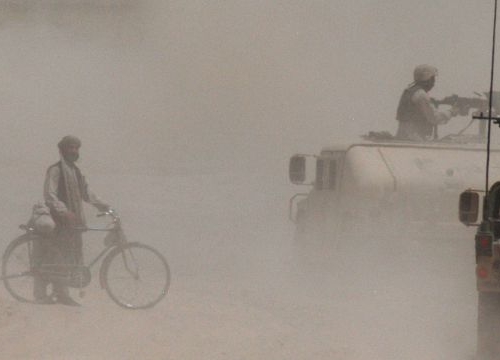The Guidelines on Investigating Violations of IHL are now available in Arabic, French, Spanish and Russian


ICRC
14 January 2021
The Guidelines on Investigating Violations of International Humanitarian Law: Law, Policy and Good Practice – co-published with the International Committee of the Red Cross (ICRC) – are now also available in Arabic, French, Spanish and Russian.
‘These guidelines – the first document of its kind – provide key guidance to States aiming to conduct investigations of international humanitarian law (IHL) violations, but also to other bodies and individuals seeking a more detailed understanding of investigations in armed conflict. The fact that they are now available in five different languages will allow for their further dissemination and use in the field’ underlines Professor Gloria Gaggioli, Director of the Geneva Academy.
‘Effective investigations by States at the domestic level are an unparalleled tool for securing better compliance with IHL on the ground, where it matters most’ notes Dr Helen Durham, Director of International Law and Policy at the ICRC. ‘The ICRC is pleased to have collaborated with the Geneva Academy on this project and to have been able to provide different language editions of the Guidelines, which will help raise awareness of this important issue and increase the impact and application’.
About the Guidelines
Investigations into alleged violations of IHL by the parties to an armed conflict are not only crucial to securing respect for IHL, but also to preventing future violations and enabling redress for victims of past violations. Despite the unquestionable importance of investigations, there is a lack of detail with regard to the international law, principles and standards relevant to investigations in armed conflicts. This is further reflected in the disparate practice across states in the way investigations are carried out.
The Guidelines on Investigating Violations of IHL: Law, Policy, and Good Practice aim to bring much-needed clarity and support for the conduct of effective investigations into violations of IHL.
The Guidelines are the result of a five-year project, initiated in 2014 by the Geneva Academy of International Humanitarian Law and Human Rights and joined in 2017 by the ICRC. The project was conducted by the former IHL Chair of the Geneva Academy, Professor Noam Lubell, Jelena Pejic, Senior Legal Adviser at the ICRC and Claire Simmons.
‘We value very much this collaboration with the ICRC which was instrumental in the development of this key document as well as in its dissemination with relevant stakeholders’ stresses Professor Gloria Gaggioli.







